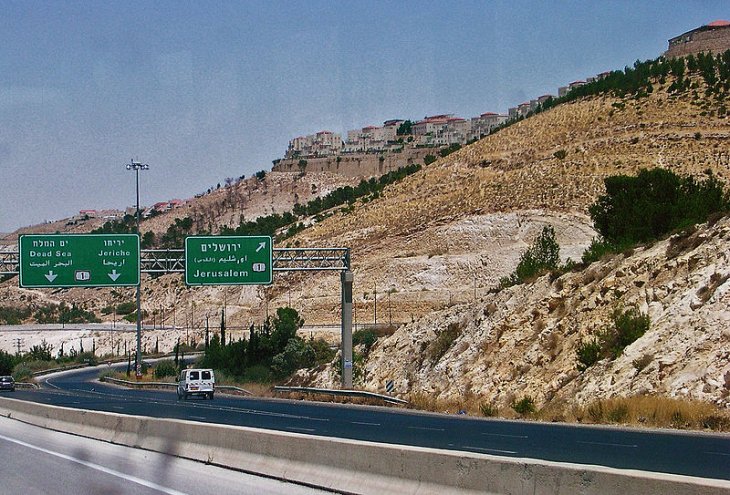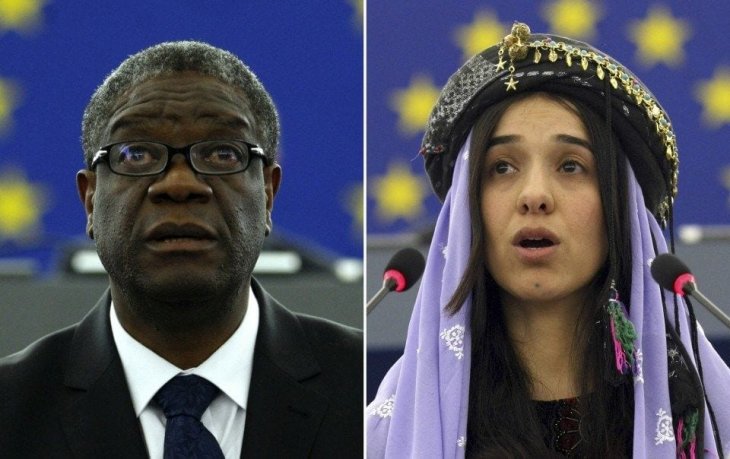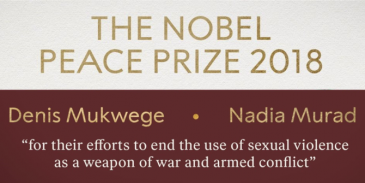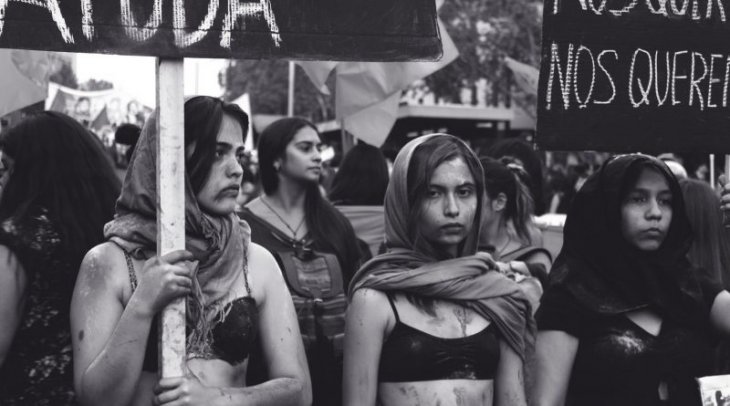Monday 15 October The first meeting of the pre-transitional committee was postponed due to logistical reasons and will now start on the 21 October. A recent documentary by John-Allan Namu accused Paul Malong for committing war crimes during the conflict. Malong strongly denied the allegations. Thursday 18 October Logistics Cluster: “South Sudan – Access Constraints… Read more »
Will climate adaptation move us toward peace?
Climate adaptation has been praised for its potential for contributing to peace. It is highlighted for the potential to remake systems and equip the world to better cope with the impacts of climate change. However, these remain hopeful claims until rigorous research is done on how this might take place and what type of peace… Read more »
Lessons from Camp David
Forty years ago, President Jimmy Carter orchestrated peace between Israel and Egypt; yet the conflict between Israel and Palestinians is further than ever from a solution. Those outcomes are closely linked. There are lessons for President Donald Trump to learn from Carter’s experience, if he is attentive.

An Israeli settlement near Jerusalem, 2005. Photo: Xavier Malafosse / Wiki Commons
This Week in South Sudan – Week 41
Monday 8 October The information minister Michael Chiengjiek said the situation in the detention center in Juba was resolved peacefully. The government of South Sudan (GoSS) agreed to grant prisoners with lawyers and fair trials. The National Pre-Transitional Committee will conduct their first meeting in Khartoum on the 14-15 October. The South Sudan Unified Front… Read more »
Why the Nobel Peace Prize Went to Two People Fighting Sexual Violence in War

Denis Mukwege of Congo, left, and Nadia Murad, a Yazidi survivor from Iraq. (Christian Lutz/AP)
As Islamic State forces swept through northern Iraq in 2014, they captured the city of Mosul and then attacked the nearby Yazidi people. Thousands of Yazidis were executed — and some 3,000 girls and women were kidnapped. Most were sexually enslaved.
One of the two recipients of this year’s Nobel Peace Prize is a survivor named Nadia Murad. The other winner is Denis Mukwege, the gynecologist who founded Panzi Hospital, which treats and supports girls and women brutalized by sexual violence in Congo. The Nobel committee recognized their advocacy on behalf of victims of wartime sexual violence.
Wartime sexual violence, which includes sexual torture and forced marriage, as well as rape and sexual slavery, inflicts excruciatingly painful, sometimes mortal injuries and suffering on victims, their families and their communities. But two decades of social science research has shown that these crimes are not inevitable and unavoidable collateral damage. These crimes can be mitigated — but this depends on understanding why and how wartime sexual violence occurs.
As Islamic State forces swept through northern Iraq in 2014, they captured the city of Mosul and then attacked the nearby Yazidi people. Thousands of Yazidis were executed — and some 3,000 girls and women were kidnapped. Most were sexually enslaved.
One of the two recipients of this year’s Nobel Peace Prize is a survivor named Nadia Murad. The other winner is Denis Mukwege, the gynecologist who founded Panzi Hospital, which treats and supports girls and women brutalized by sexual violence in Congo. The Nobel committee recognized their advocacy on behalf of victims of wartime sexual violence.
Wartime sexual violence, which includes sexual torture and forced marriage, as well as rape and sexual slavery, inflicts excruciatingly painful, sometimes mortal injuries and suffering on victims, their families and their communities. But two decades of social science research has shown that these crimes are not inevitable and unavoidable collateral damage. These crimes can be mitigated — but this depends on understanding why and how wartime sexual violence occurs.
From climate to conflict? Old question, new insights from experts
The scholarly debate on the security implications of climate change has been highly animated over the past ten years. Although most agree that a powerful and general direct relationship is not likely, an overarching consensus on more subtle connections has not yet been reached. However, recent research directions suggest that scholars are now moving towards… Read more »
This Week in South Sudan – Week 40
Monday 1 October Sudan’s minister of foreign affairs Eldirdiri Mohamed Ahmed called on the UN to mandate a doubling of the prospective regional protection force to monitor the implementation of the South Sudan peace agreement. The Joint Monitoring and Evaluation Commission lauded the release of all Prisoners of War and Political Detainees. President Kiir sacked… Read more »
Nobel Peace Prize to Denis Mukwege and Nadia Murad
The choice to award the 2018 Nobel Peace Prize to Denis Mukwege and Nadia Murad is both timely and wise. The two Nobel laureates embody different dimensions of conflict-related sexual violence. Further, the prize comes at a time when we mark the one-year anniversary of the #metoo movement, when trust in international bodies and agreements is on the decline, and when violent extremism is on the rise.
 While this Nobel Peace Prize is by no means a #metoo prize, there are features of the movement that are compatible with the fight against conflict-related sexual violence.
While this Nobel Peace Prize is by no means a #metoo prize, there are features of the movement that are compatible with the fight against conflict-related sexual violence.
The #metoo movement has moved the conversation about sexual abuse and harassment from a focus on how to improve protection and mitigate effects on victims, to a focus on the men, male cultures and organizations which enable sexual harassment and abuse.Read More
This Week in South Sudan – Week 39
Tuesday 25 September South Sudanese surgeon Dr. Evan Ata Adaha was awarded the 2018 UNHCR’s Nansen Refugee Award. President Kiir appointed Malek Reuben Riak Rengu, a UN-sanctioned general, as deputy defence minister. Mahmood Mamdani in New York Times: “The Trouble with South Sudan’s New Peace Deal”. Wednesday 26 September The SPLA and SPLA-IO accused each… Read more »
The mass killing of women activists in Latin America: making political violence visible
In 2017, Latin America was described by the UN as the world’s most violent continent for women. The assassinations of women activists and community leaders have continued across the region in 2018. While the killing of Marielle Franco, a favela community leader, and the unraveling of government-private enterprise collusion in the 2016 killing of Berta Cáceres, an environmental activist in Honduras, have been portrayed as political murders by international media, there is substantial academic work to do with respect to theorizing the gendered aspects of these types of killings.

Photo: Laëtitia Buscaylet via Flickr
In their influential edited volume Violent Democracies in Latin America (2010) Arias and Goldstein argue that the ‘evolutionist’ democracy theory’s understanding of disorder as a failure of institutions fails to grasp Latin American politics in the context of proliferating violence. They offer the concept ‘violent pluralism’ as a prism for interrogating and understanding the co-existence of structural and personal, political and social violence and democracy in contemporary Latin America. Violent pluralism is defined as ‘states, social elites, and subalterns employing violence in the quest to establish or contest regimes of citizenship, justice, rights, and a democratic social order’. However, as a theory on violent democracies, the theory of violent pluralism is silent on the gendered realities of this violence as it plays out in Latin America. Considering the success of this concept, it is important that the concept has the capacity to help make visible how much of the political violence in the region takes the shape of violence against women involved in grassroots mobilization.